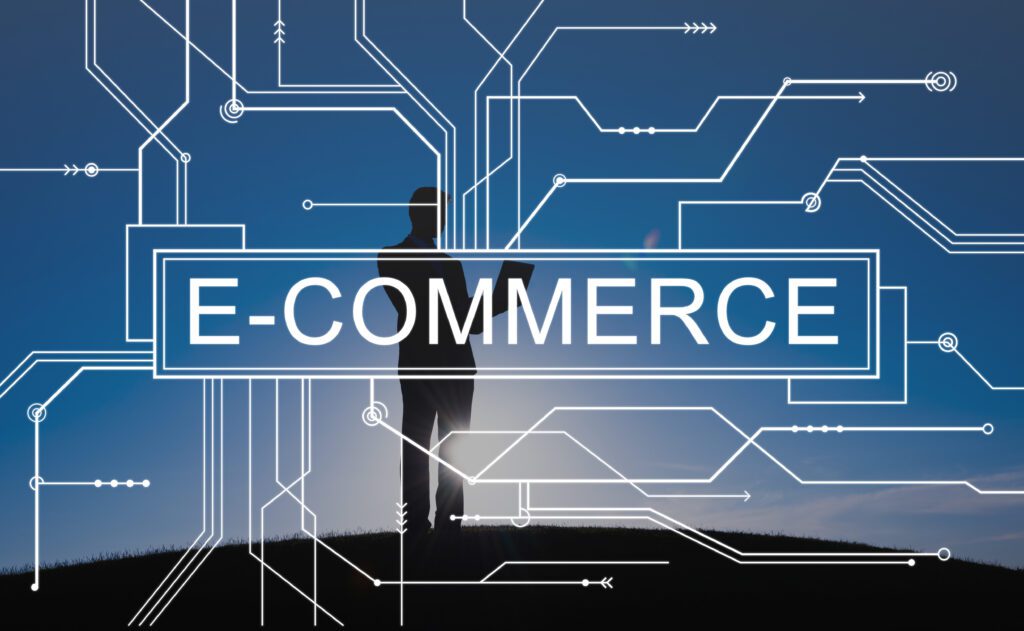
E-commerce Marketing in the Digital Age
E-commerce marketing in the digital age In today’s fast-paced digital age, the landscape of business and marketing has experienced a significant transformation. One sector that has been profoundly impacted by these changes is e-commerce marketing. E-commerce, the buying and selling of goods and services through online platforms, has become an integral part of the modern business world. This article will explore how e-commerce marketing has evolved in the digital age, detailing various strategies and techniques that businesses employ to thrive in the online marketplace.
1. Introduction
The introduction of the article will set the stage by providing a brief overview of e-commerce marketing and its relevance in the current digital era. It will highlight the growing significance of online commerce and its impact on traditional business models.
2. Understanding E-commerce marketing in the digital age
In this section, we will delve into the definition of e-commerce marketing and its historical development. Understanding the origins and evolution of e-commerce marketing will provide valuable context for readers.
2.1 Definition of E-commerce Marketing
Here, we will explain the concept of E-commerce marketing in the digital age, illustrating how it differs from traditional marketing methods. Key elements such as online transactions and digital advertising will be highlighted.
2.2 Evolution of E-commerce Marketing
This subheading will explore the journey of E-commerce marketing in the digital age from its early days to its current state. The article will discuss the major milestones and innovations that have shaped the e-commerce landscape.
3. The Digital Age and Its Impact on Marketing
The digital age has brought about significant changes in consumer behavior and market dynamics. This section will focus on the rise of digital technologies and their profound impact on marketing strategies.
3.1 Rise of Digital Technologies
We will discuss the advent of digital technologies such as the internet, smartphones, and artificial intelligence. These innovations have revolutionized the way businesses engage with their customers.
3.2 Changing Consumer Behavior
This subheading will highlight the shifts in consumer behavior, emphasizing the growing preference for online shopping and the influence of digital media on purchasing decisions.
4. The Role of Social Media in E-commerce Marketing
Platforms for social media have developed into effective instruments for e-commerce promotion. This section will explore how businesses leverage social media to reach their target audience and build brand awareness.
4.1 Leveraging Social Media Platforms
We will discuss the various social media platforms and their unique advantages for e-commerce marketing. Strategies for creating engaging content and fostering customer interactions will be covered.
4.2 Influencer Marketing
Influencer marketing has emerged as a popular approach in E-commerce marketing in the digital age. This subheading will explain how businesses collaborate with influencers to promote their products and services.
5. Search Engine Optimization (SEO) for E-commerce
Search Engine Optimization plays a vital role in driving organic traffic to E-commerce marketing in the digital age. This section will explore the importance of SEO and outline best practices for optimizing e-commerce platforms.
5.1 Importance of SEO in E-commerce
The significance of SEO in increasing website visibility and attracting potential customers will be discussed in this part.
5.2 Best SEO Practices for E-commerce Websites
E-commerce marketing in the digital age We will provide actionable SEO tips tailored to E-commerce marketing in the digital age, including keyword research, on-page optimization, and link-building strategies.
6. Content Marketing Strategies
Compelling content is a cornerstone of successful E-commerce marketing in the digital age. This section will explore the various content marketing strategies employed by businesses to engage their target audience.
6.1 Creating Engaging Content
E-commerce marketing in the digital age We will highlight the importance of high-quality content and provide insights into crafting captivating product descriptions, blog posts, and visual content.
6.2 Video Marketing in E-commerce
Video marketing has gained traction in the e-commerce industry. This subheading will discuss the power of video content in driving customer engagement and sales.
7. Mobile Marketing and E-commerce
As mobile usage continues to rise, businesses must optimize their e-commerce platforms for mobile devices. This section will explore mobile-friendly design and the importance of mobile apps for e-commerce success.
7.1 Mobile-Friendly Websites
E-commerce marketing in the digital age This part will emphasize the significance of responsive web design and the impact of mobile optimization on user experience.
7.2 Mobile Apps for E-commerce
We will discuss the benefits of mobile apps for e-commerce businesses, such as enhanced customer loyalty and personalized shopping experiences.
8. Personalization and Customer Experience
E-commerce marketing in the digital age Personalization is a key factor in customer satisfaction and retention. This section will explore how businesses can leverage data to provide tailored experiences to their customers.
8.1 Understanding Customer Preferences
E-commerce marketing in the digital age We will discuss the role of data analytics in understanding customer preferences and behavior, enabling businesses to deliver personalized recommendations.
8.2 Implementing Personalization Techniques
This subheading will delve into various personalization techniques, such as product recommendations, dynamic pricing, and personalized email marketing.
9. Data Analytics in E-commerce Marketing
Data-driven decision-making is crucial for e-commerce success. This section will explore the role of data analytics in optimizing marketing strategies and driving business growth.
9.1 Utilizing Data for Decision Making
We will explain how businesses can collect, analyze, and interpret data to make informed marketing decisions.
9.2 Predictive Analytics in E-commerce
This subheading will highlight the use of predictive analytics to anticipate customer behavior and optimize marketing efforts.
10. E-commerce Advertising Methods
E-commerce marketing is not complete without paid advertising. This section will explore popular advertising methods and their effectiveness in reaching target audiences.
10.1 Pay-Per-Click (PPC) Advertising
We will discuss the concept of PPC advertising and its advantages for e-commerce businesses, along with strategies for managing PPC campaigns.
11. Building Customer Trust and Loyalty
Establishing trust and fostering customer loyalty are critical for long-term success in e-commerce. This section will explore strategies that businesses can employ to gain customers’ trust and keep them coming back for more.
11.1 Customer Reviews and Testimonials
We will discuss the importance of customer reviews and testimonials in building credibility and reassuring potential buyers about the quality of products or services.
11.2 Loyalty Programs
This subheading will explore the benefits of loyalty programs in e-commerce, such as rewarding repeat customers and encouraging brand advocacy.
12. E-commerce Security and Privacy
Ensuring the security and privacy of customer data is paramount in e-commerce. This section will delve into the measures businesses must take to safeguard sensitive information and maintain customer trust.
12.1 Ensuring Secure Transactions
We will discuss the significance of secure payment gateways and SSL certificates in protecting financial transactions.
12.2 Data Protection Measures
This subheading will explore the importance of data encryption, user consent, and compliance with data protection regulations to safeguard customer information.
13. E-commerce and Omnichannel Marketing
Omnichannel marketing integrates multiple channels to create a seamless customer experience. This section will explain how businesses can adopt an omnichannel approach to enhance their e-commerce strategies.
13.1 Integrating Online and Offline Channels
We will discuss the benefits of bridging the gap between online and offline sales channels to offer customers a cohesive shopping experience.
13.2 Benefits of Omnichannel Approach
This subheading will outline the advantages of an omnichannel strategy, including improved customer engagement and increased brand loyalty.
14. The Future of E-commerce Marketing
The e-commerce landscape is continually evolving with technological advancements. This section will provide insights into the future trends and innovations that are likely to shape the e-commerce marketing sphere.
14.1 Emerging Technologies
We will explore cutting-edge technologies like augmented reality, virtual reality, and artificial intelligence that are poised to revolutionize e-commerce marketing.
14.2 Anticipated Trends
This subheading will discuss the predicted trends in e-commerce marketing, such as hyper-personalization, voice search optimization, and sustainable e-commerce practices.
15. Conclusion
We shall briefly touch on the article’s main themes in the conclusion. We will emphasize the significance of e-commerce marketing in the digital age and how businesses can adapt to the ever-changing landscape to thrive in the online marketplace.
FAQs (Frequently Asked Questions):
- What is e-commerce marketing?E-commerce marketing refers to the strategies and techniques employed by businesses to promote and sell their products or services through online platforms.
- How has the digital age impacted e-commerce marketing?The digital age has transformed e-commerce marketing by introducing new technologies and altering consumer behavior, leading to increased online shopping and digital advertising.
- What function does social media play in the marketing of e-commerce? Social media platforms serve as powerful tools for businesses to reach their target audience, build brand awareness, and engage with customers through content and influencer marketing.
- What justifies the significance of SEO for e-commerce websites? Search Engine Optimization (SEO) helps e-commerce websites rank higher on search engine results, driving organic traffic and increasing visibility to potential customers.
- How can businesses personalize customer experiences in e-commerce?By leveraging data analytics, businesses can understand customer preferences and implement personalization techniques, such as product recommendations and personalized marketing.
